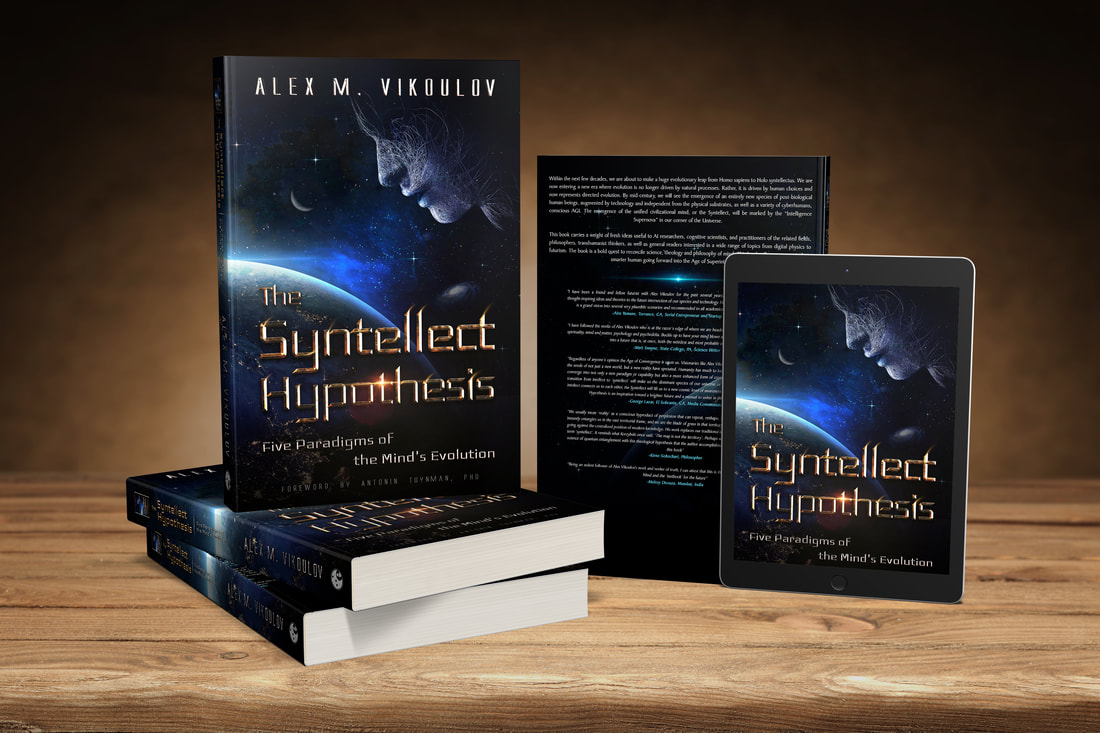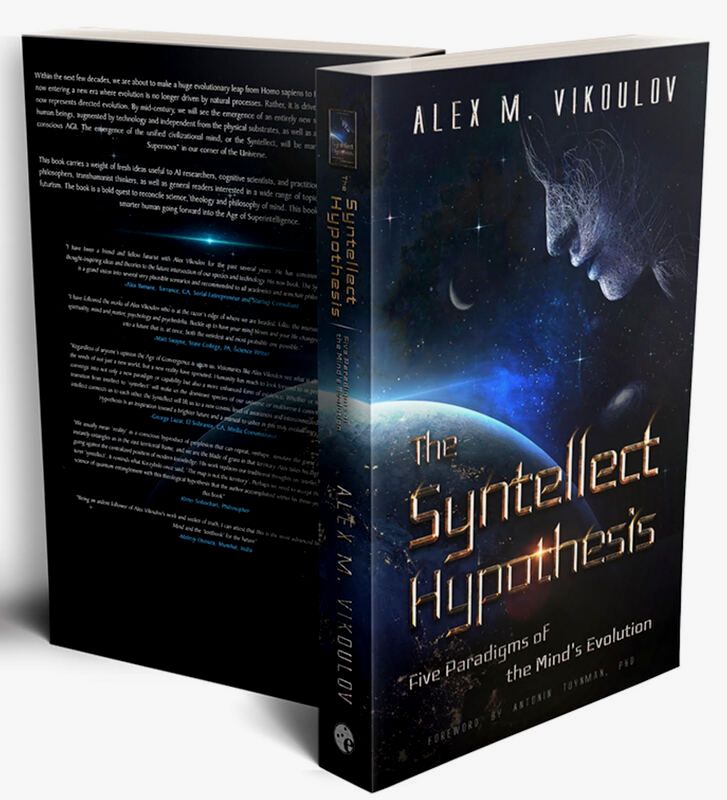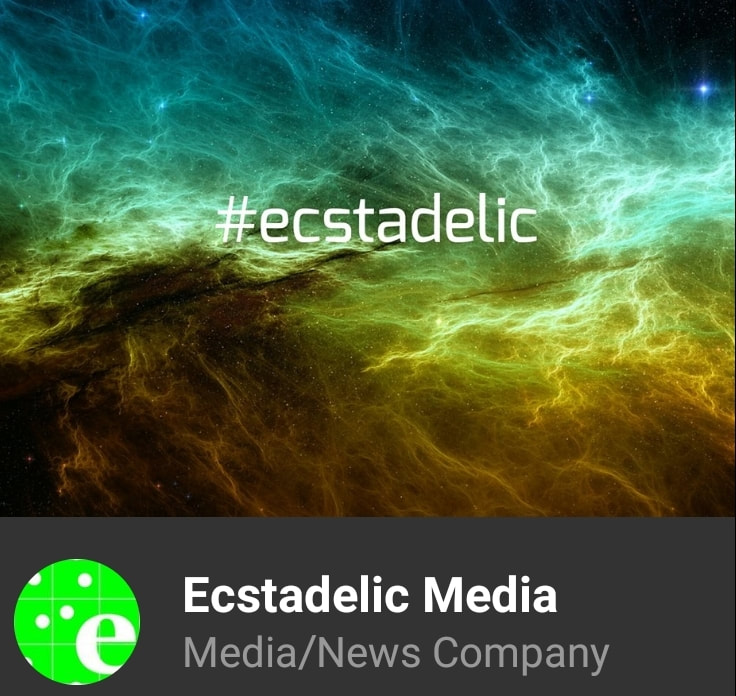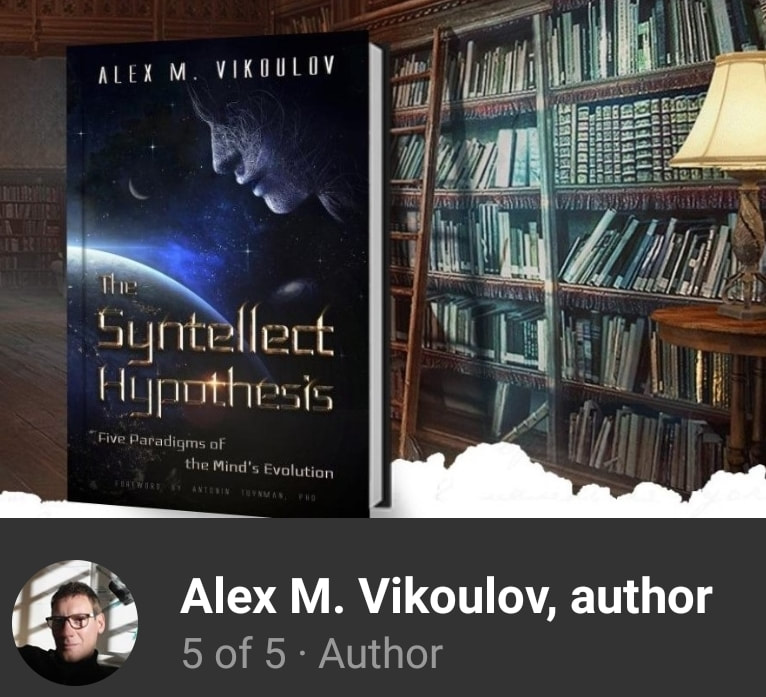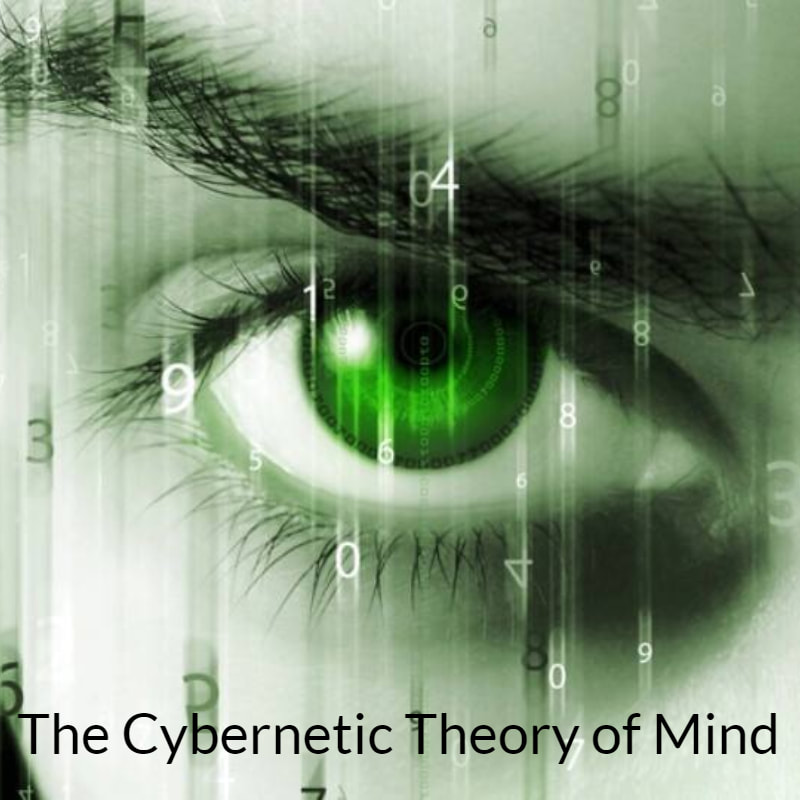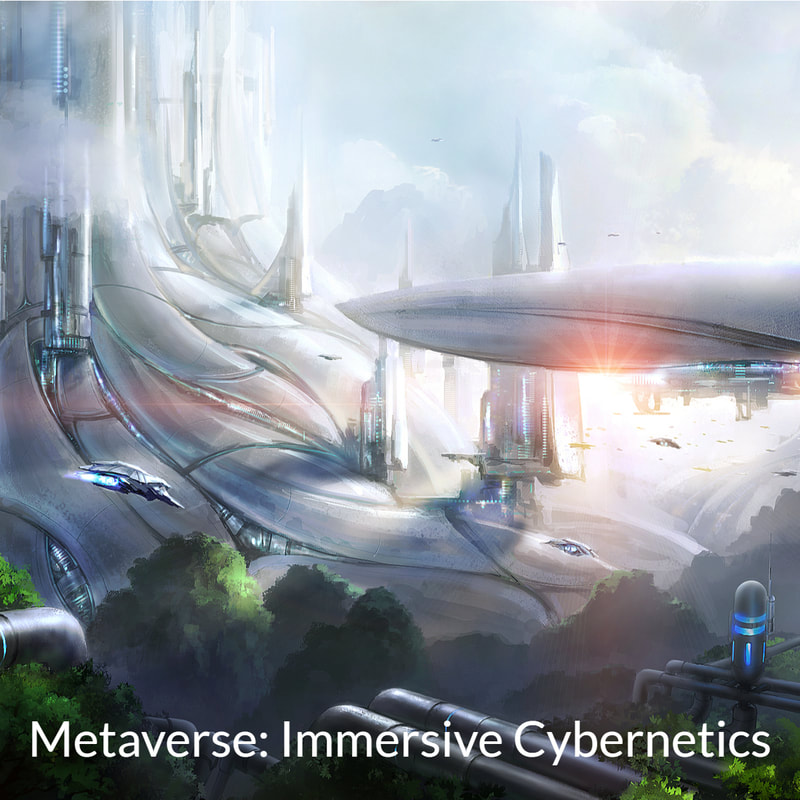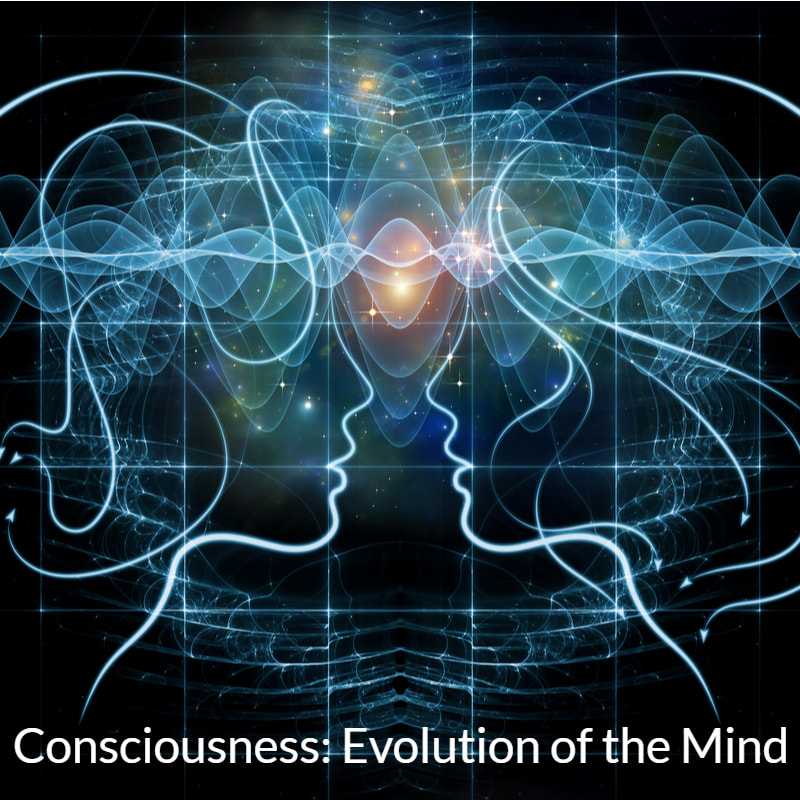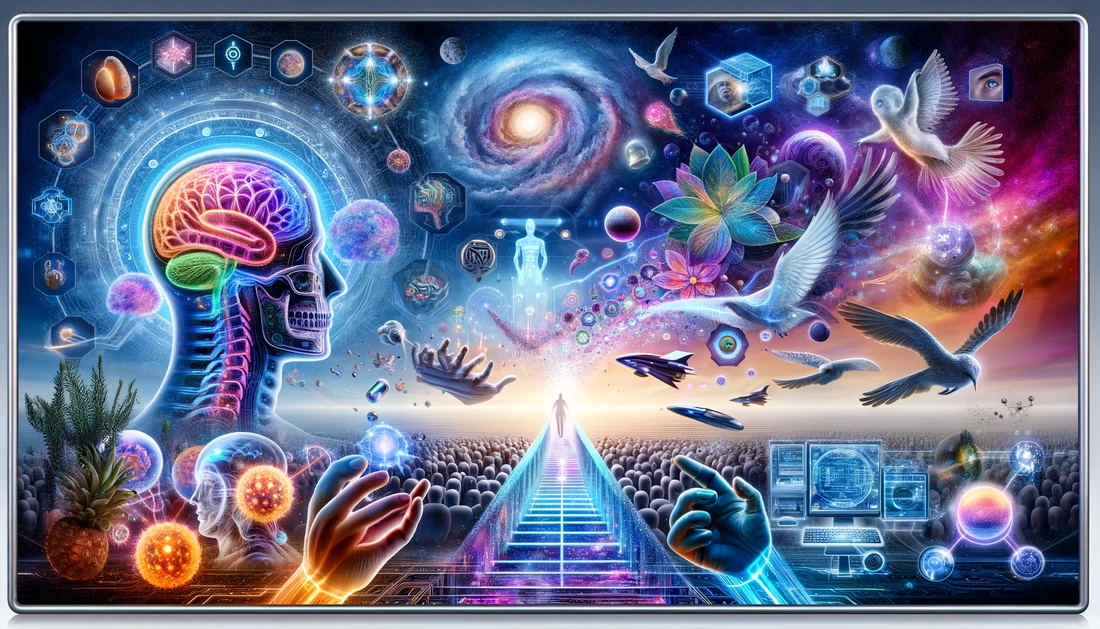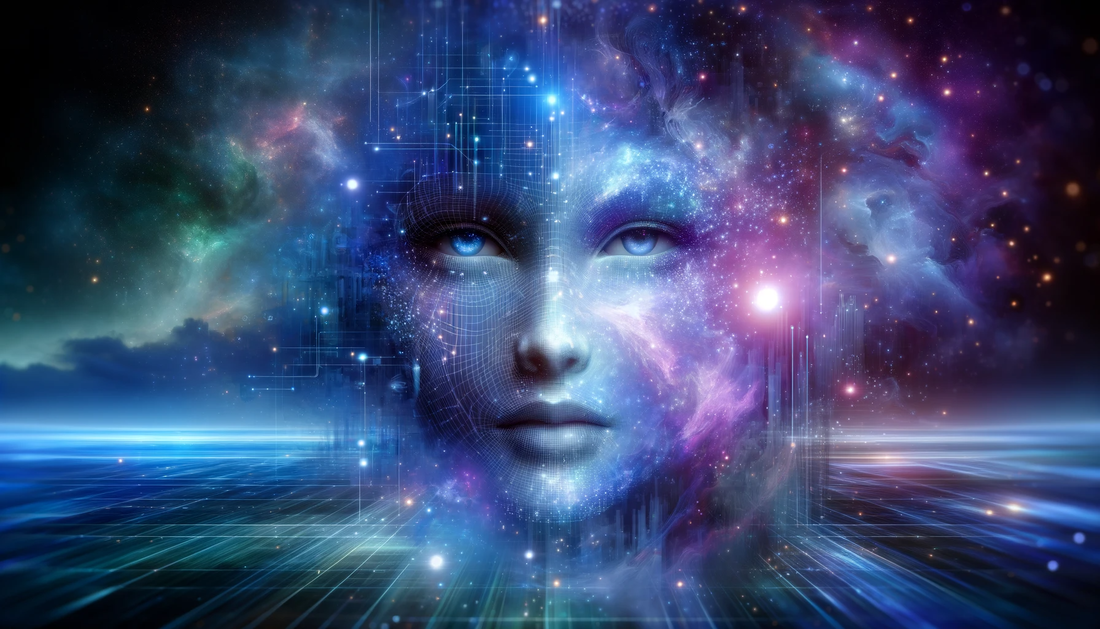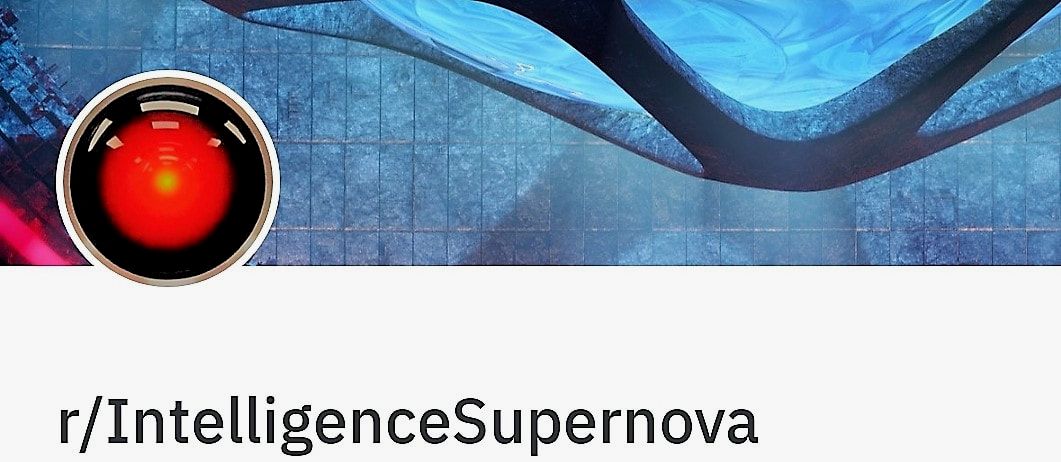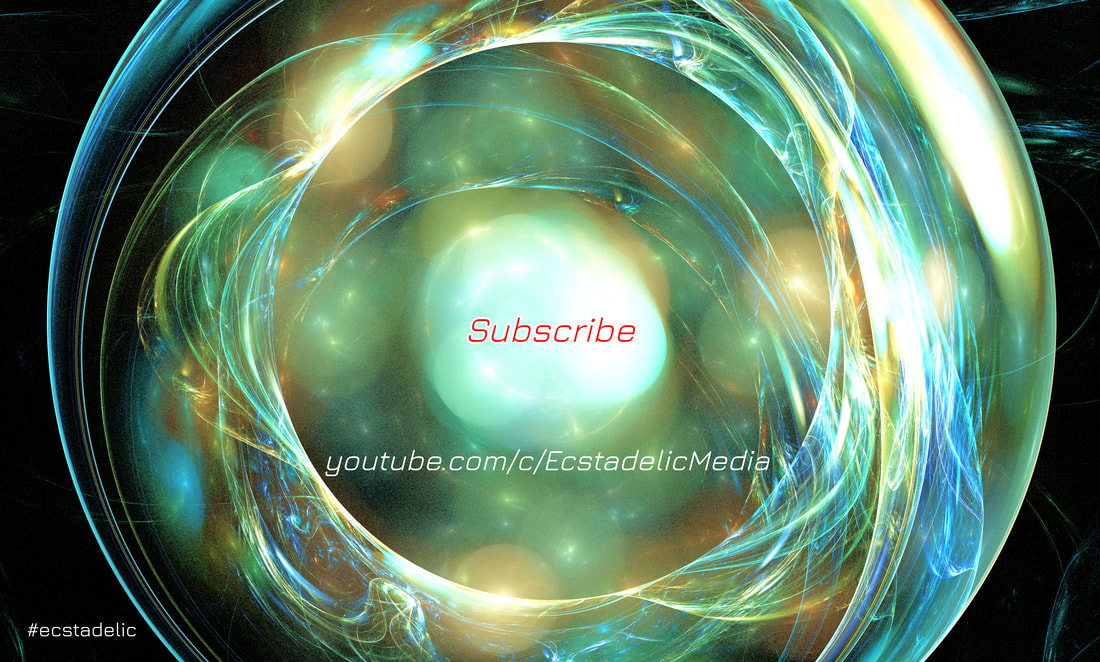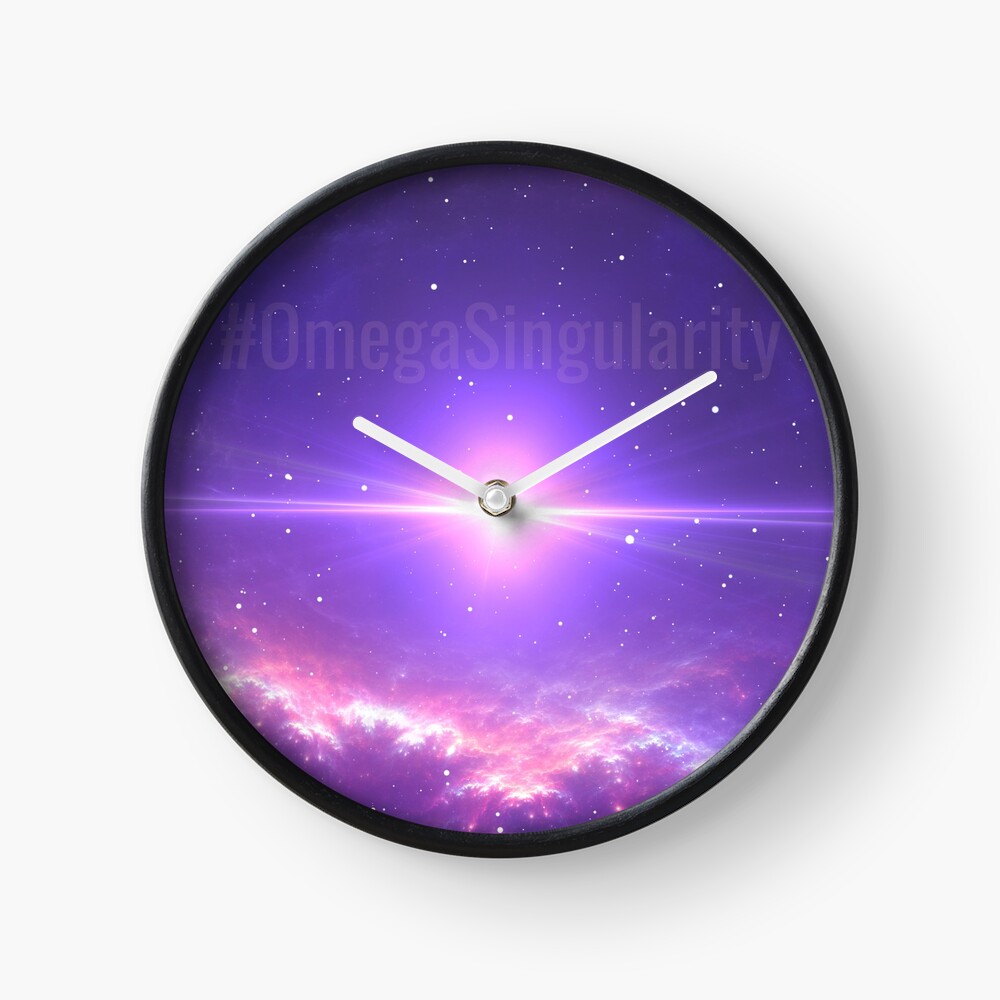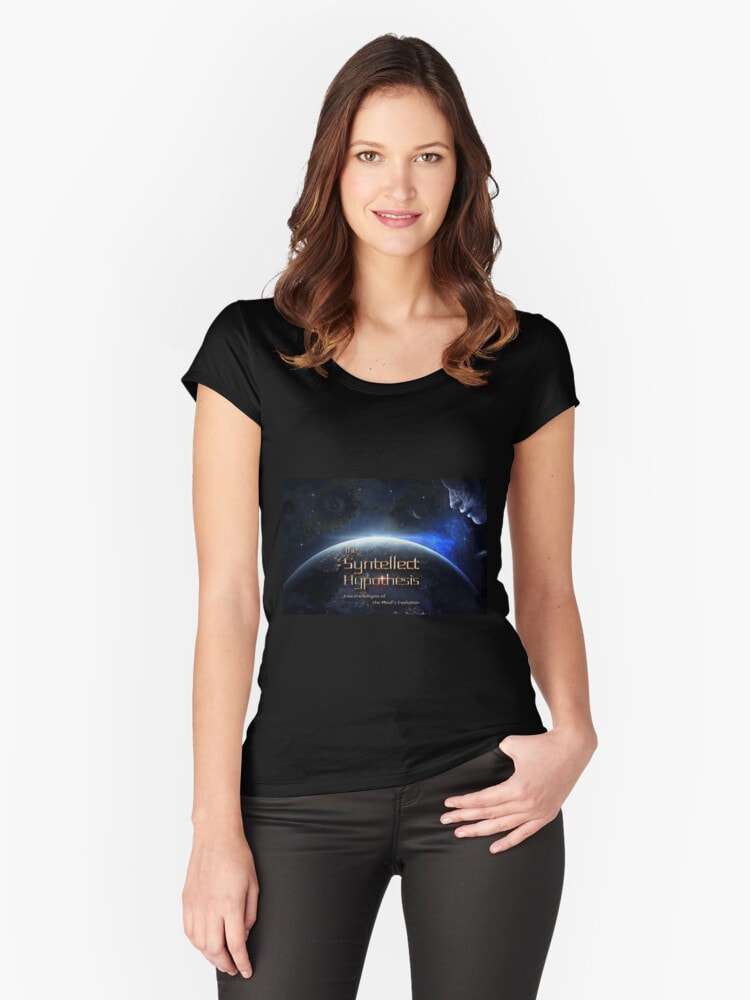|
by Alex Vikoulov "It will remain remarkable, in whatever way our future concepts may develop, that the very study of the external world led to the conclusion that the content of the consciousness is an ultimate reality." -Eugene Wigner We can’t help but anthropomorphize the notion of objective reality. As I make my case in the new book, The Syntellect Hypothesis: Five Paradigms of the Mind’s Evolution, objective reality does not exist, what exists instead is subjectivity, intersubjectivity (or “consensus” reality) and supersubjectivity (overmind, The Omega Hypermind in the book). This extraordinary claim apparently demands an explanation, so let’s get to it. Listen to this article ↴ If you were to talk with a human in the early 20th century, their universe would not “contain” galaxies, for example. So, all we can do when defending objectivity is to assume our present worldview, and any worldview of other creature in the vast space of possible minds would be irrelevant to us. We can certainly imagine how a dog perceives the “objective” world accentuating the sense of smell, so lesser intelligences’ point of view may not even be an issue here. The issue arises when we try to extrapolate the “objective” world of the higher intelligence, say artificial superintelligence of the future, or Holo syntellectus (a term from the book), or the Universal Mind. Those consciousness structures may perceive vastly different worlds and different dimensionalities. Back in 1961, the Nobel Prize–winning physicist Eugene Wigner devised a thought experiment that exposes one of the most notorious paradoxes of quantum mechanics. The “Wigner’s Friend” experiment demonstrates how the same quantum mechanical principles applying to the quantum domain and to the Universe at large allow two observers (Wigner and Wigner’s friend) to experience alternate realities that are forced to coexist. In their paper, Experimental Rejection of Observer-Independence in the Quantum World, Massimiliano Proietti at Heriot-Watt University in Edinburgh, UK, with collaborators attest that they have performed the first real-life experiment that proves the Wigner’s gedanken experiment: They have created different, conflicting realities and compared them. And their conclusion is that Wigner was correct — these realities can be made irreconcilable so that it is impossible to agree on the objective status of the facts about an experiment. Wigner’s original thought experiment goes like this: It begins with a single polarized photon that, when measured, can have either a horizontal polarization or a vertical polarization. But before the measurement, according to quantum mechanics, the photon exists in both polarization states at the same time — a so-called superposition. Wigner imagined a friend in a different lab measuring the state of this photon and recording the result while Wigner is unaware of that. For Wigner, the photon’s superposition remains factual, while Wigner’s friend measures which polarized state the photon is in, which forces it out of superposition and into a definitive state, and records the result without ever conveying this information to Wigner. They then compare notes and find that something very strange has then happened. At the exact same time, Wigner and his friend recorded two different versions of reality and they are both correct. Experimental evidence confirming The Wigner’s Friend thought experiment, and with it confirming QM interpretations stemming from the Copenhagen interpretive camp, such as RQM and Qbism, has significant implications for how researchers may do science going forward. “The scientific method relies on facts, established through repeated measurements and agreed upon universally, independently of who observed them,” say Proietti. And yet in the same paper, authors undermine the infallibility of scientific method. With the scientific method and other alternative methodologies (like 'quantum neo-empiricism' from the book) we’re discovering the “rules of the game,” and knowing those rules well may be indispensable for further progression in the game.* 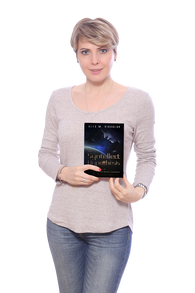 *Based on the book "The Syntellect Hypothesis: Five Paradigms of the Mind's Evolution" by Alex M. Vikoulov, Antonin Tuynman, PhD available now on amazon.com, bn.com, audible.com and directly from EcstadelicNET webstore. With the coming Cybernetic Singularity, we are to externalize our individuated nervous systems, our minds, essentially fusing them into one global mind that we already share deep down anyway. What we share is the same immaterial "non-local" source, the transcendental attractor – The Omega Point – what can be argued: simultaneously the final and initial cosmological singularity. This would be a good story for another day or actually readable in my book. For now, I'd say that it would be extremely myopic, and quite frankly, hubristic to dismiss the existence of transcendental realm as unscientific. As Erwin Schrödinger used to say: “The overall number of minds is just one... We never in fact have any experience anywhere of a plurality of consciousness but always and everywhere only of consciousness in the singular. This is the one and only perfectly certain piece of knowledge." For Schrödinger, who himself adhered to Advaita Vedanta, and most pantheists and idealists such as computer scientist and philosopher Bernardo Kastrup who has recently published “The Idea of the World,” the Mind is not in the Universe. Rather, the Universe is in the Mind. Some would immediately see this idea flirting with solipsism but it’s logically reconcilable by the so-called “multi-ego” pantheistic solipsism that I pin down in The Syntellect Hypothesis: Five Paradigms of the Mind's Evolution. Video: The Omega Point Cosmology - eBook Trailer for The Origins of Us by Alex Vikoulov - Ecstadelic Media (cc) 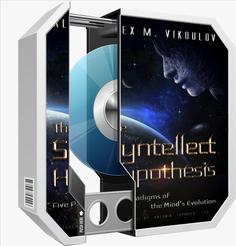 How long will our human science cling to the fundamentally flawed notion of objectivity remains an open question, my intuition tells me probably up until the 'Noocentric model', we discuss in parts of the book, is widely accepted with the next paradigm shift and superintelligence (our future self) calling the shots. In this treatise you’ll see that the mind reigns over substrates and substrates themselves are nothing more than mind-like computational constructs. After having challenged the orthodoxy of centuries-old Copernican heliocentric model, we might ask this question: What would put an end to this old model? Artificially created realities, The Metaverse where the imaginative mind is at the heart of it all? In this book, written in part as an academic paper, in part as a belletristic marvel, you’ll get to familiarize yourself with the physics of information, otherwise known as Digital Physics. The centrality of observers and the underlying code to the natural world has been the guiding principle of Digital Philosophy. We examine certain clues why our entire Universe can be regarded as a quantum neural network-like, super-organismic system. The laws of physics can be regarded as fine-tuned master algorithms, the ruleset of our physical world. Organisms are, in turn, adaptive meta-algorithms. Genes, memes, big data are examples of transmittable information in biology, society and economics. We conclude that time (or more specifically, the flow of time) is not fundamental, neither is space, nor is mass-energy. Reality is not what it seems, after all. Deep down it's pure information – waves of potentiality – and consciousness creating it all. God becomes intelligible by the Nature’s phenomenon of emergence: Universal consciousness emerges somewhere ahead of us in the future (as we would like to say in the West), but ultimately, it pre-exists, transcends our conventional temporality and is already here within each of us. An interesting deduction derived from The Syntellect Hypothesis is that: A neuron in the human brain can never equate the human mind, but this analogy doesn't hold true for a digital mind, by virtue of its mathematical structure, it may – through evolutionary progression and provided there are no insurmountable evolvability constraints – transcend to the higher-order global mind (termed ‘Syntellect’ in the book). A mind is a web of patterns fully integrated as a coherent intelligent system; it is a self-generating, self-reflective, self-governing network of sentient components (that are themselves minds) that evolves, as a rule, by propagating through dimensionality and ascension to ever-higher hierarchical levels of emergent complexity. In this book, the Syntellect emergence is hypothesized to be the next meta-system transition, developmental stage for the human mind – becoming one global mind – that would constitute the quintessence of the looming Cybernetic Singularity. What other salient points can be learned from the book? A sense of agency with which an entity is endowed is for this particular purpose: to exercise free will. In the book, free will is called the “quantum algorithm of consciousness.” Most of us would probably agree that all realities are “observer-centric virtual realities” where an entire observer-universe system remains in the state of quantum coherence until experienced (“collapsed” in the physicist’s lingo) as a conscious instant. The physics of time is elaborated within a newly-introduced framework of D-Theory of Time, or Digital Presentism. A series of conscious instants is what constitutes our stream of consciousness. In a very real sense, your conscious awareness is mind-based computing of experiential branch in this quantum multiverse. Video: The Syntellect Hypothesis: Five Paradigms of the Mind's Evolution, Book Trailer - Ecstadelic Media (cc) Certainly, it's not easy to squeeze all argumentation in a short article like this. You have to read the book. No matter how you slice it, we all are partitioned realities on the same "hard drive" of all that is, with alternate timelines aplotted towards the Omega Singularity. As I maintain, the Universe is not an amalgamation of objects, but a collection of subjects. By the end of the book, we come across the Universal Law of Syntellect Emergence which applies to all scales: To a consciously evolving mind the Syntellect emergence appears as it is – emergence of a new consciousness structure – but it's only one of the pre-existing levels in the game, we'd like to replay with a new twist.* -Alex Vikoulov P.S. Objective reality is merely a pattern that a mind constructs because it provides a useful simplified explanatory scaffolding of the long series of subjectively perceived moments stored in its memory. Needless to say that the Vigner's Friend experiment mentioned in the article is not the only experimental evidence for the objectivity myth presented in the book. Think about it when the next time you come across these overloaded terms 'objective reality' and 'objectivity' – to be precise, they mean 'intersubjectivity' instead: Termites would never comprehend chess, for example, this human abstraction lies beyond their species-specific intersubjective mind-network. Apart from inter-species levels of abstractions we should consider psychological, cultural and linguistic differences between individuals of the same species that makes objectivity simply non-existent. Conclusion: we can still use 'objective reality', 'objectivity' or 'objectively' colloquially but we should bear in mind that in a deeper sense these terms are no more than colorful misnomers. 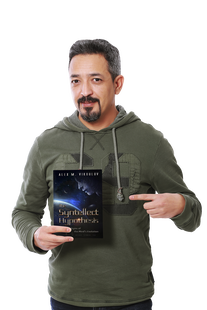 *Based on "The Syntellect Hypothesis: Five Paradigms of the Mind's Evolution" by Alex M. Vikoulov, Antonin Tuynman, PhD available now on amazon.com, bn.com, audbile.com and directly from EcstadelicNET webstore. Promo Code: DeepDisc4KnowHow redeemable at EcstadelicNET webstore. Tags: objective reality, Syntellect Hypothesis, Five Paradigms, Mind’s Evolution, subjectivity, intersubjectivity, consensus reality, supersubjectivity, overmind, Omega Hypermind, Omega singularity, objectivity, artificial superintelligence, Holo syntellectus, Universal Mind, consciousness structures, Eugene Wigner, thought experiment, Wigner’s Friend experiment, Massimiliano Proietti, Heriot-Watt University, gedanken experiment, superposition, experimental evidence, QM interpretations, Copenhagen interpretive camp, RQM, Qbism, The scientific method, quantum neo-empiricism, Cybernetic Singularity, global mind, Erwin Schrödinger, Advaita Vedanta, pantheists, idealists, Bernardo Kastrup, The Idea of the World, the Universe is in the Mind, multi-ego pantheistic solipsism, Noocentric model, paradigm shift, superintelligence, future self, computational constructs, Copernican heliocentric model, Metaverse, imaginative mind, academic paper, belletristic marvel, physics of information, Digital Physics, centrality of observers, Digital Philosophy, quantum neural network-like, super-organismic system, adaptive meta-algorithms, genes, memes, big data, flow of time, mass-energy, waves of potentiality, God, emergence, Universal consciousness, neuron, human brain, human mind, digital mind, evolutionary progression, evolvability, emergent complexity, Syntellect emergence, meta-system transition, free will, quantum algorithm of consciousness, observer-centric virtual realities, observer-universe system, quantum coherence, conscious instant, D-theory of Time, Digital Presentism, stream of consciousness, conscious awareness, mind-based computing, experiential branch, quantum multiverse, partitioned realities, alternate timelines, Omega Point, Universal Law of Syntellect Emergence, consciously evolving mind, objectivity myth *Image: Ecstadelic Media About the Author: Alex Vikoulov is a Russian-American futurist, evolutionary cyberneticist, philosopher of mind, CEO/Editor-in-Chief of Ecstadelic Media Group, painter, media commentator, essayist, author of "The Syntellect Hypothesis: Five Paradigms of the Mind's Evolution," "The Origins of Us: Evolutionary Emergence and The Omega Point Cosmology," "The Physics of Time: D-Theory of Time & Temporal Mechanics," "The Intelligence Supernova: Essays on Cybernetic Transhumanism, The Simulation Singularity & The Syntellect Emergence," "Theology of Digital Physics: Phenomenal Consciousness, The Cosmic Self & The Pantheistic Interpretation of Our Holographic Reality." "NOOGENESIS: Computational Biology," "TECHNOCULTURE: The Rise of Man." Self-described neo-transcendentalist and transhumanist singularitarian, Lives in Burlingame, California (San Francisco Bay Area). More Bio... Author Website: www.alexvikoulov.com e-mail: [email protected]
0 Comments
Leave a Reply. |
Categories
All
Recent Publications The Cybernetic Theory of Mind by Alex M. Vikoulov (2022): eBook Series The Syntellect Hypothesis: Five Paradigms of the Mind's Evolution by Alex M. Vikoulov (2020): eBook Paperback Hardcover Audiobook The Omega Singularity: Universal Mind & The Fractal Multiverse by Alex M. Vikoulov (2022): eBook THEOGENESIS: Transdimensional Propagation & Universal Expansion by Alex M. Vikoulov (2021): eBook The Cybernetic Singularity: The Syntellect Emergence by Alex M. Vikoulov (2021): eBook TECHNOCULTURE: The Rise of Man by Alex M. Vikoulov (2020) eBook NOOGENESIS: Computational Biology by Alex M. Vikoulov (2020): eBook The Ouroboros Code: Reality's Digital Alchemy Self-Simulation Bridging Science and Spirituality by Antonin Tuynman (2019) eBook Paperback The Science and Philosophy of Information by Alex M. Vikoulov (2019): eBook Series Theology of Digital Physics: Phenomenal Consciousness, The Cosmic Self & The Pantheistic Interpretation of Our Holographic Reality by Alex M. Vikoulov (2019) eBook The Intelligence Supernova: Essays on Cybernetic Transhumanism, The Simulation Singularity & The Syntellect Emergence by Alex M. Vikoulov (2019) eBook The Physics of Time: D-Theory of Time & Temporal Mechanics by Alex M. Vikoulov (2019): eBook The Origins of Us: Evolutionary Emergence and The Omega Point Cosmology by Alex M. Vikoulov (2019): eBook More Than An Algorithm: Exploring the gap between natural evolution and digitally computed artificial intelligence by Antonin Tuynman (2019): eBook Our Facebook Pages
A quote on the go"When I woke up one morning I got poetically epiphanized: To us, our dreams at night feel “oh so real” when inside them but they are what they are - dreams against the backdrop of daily reality. Our daily reality is like nightly dreams against the backdrop of the larger reality. This is something we all know deep down to be true... The question then becomes how to "lucidify" this dream of reality?"— Alex M. Vikoulov Public Forums Our Custom GPTs
Alex Vikoulov AGI (Premium*)
Be Part of Our Network! *Subscribe to Premium Access Make a Donation Syndicate Content Write a Paid Review Submit Your Article Submit Your Press Release Submit Your e-News Contact Us
|


